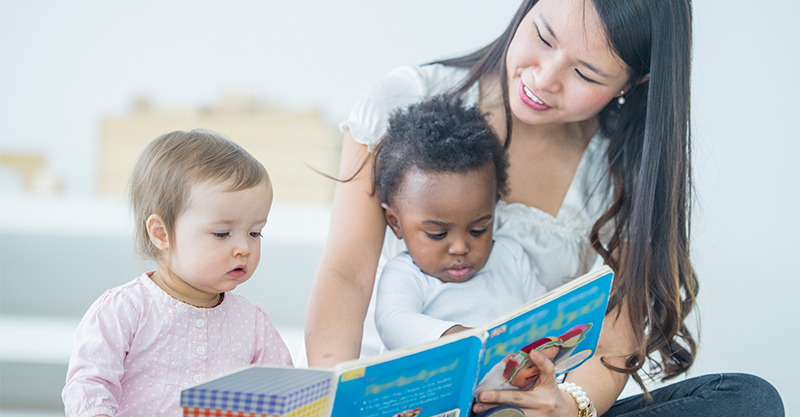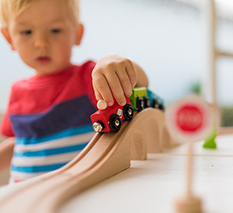Childcare workers walk off the job in March. Here’s why they need our support

The Big Walk Off is on March 27, and there are plenty of reasons why you should support your early childhood educators industrial action – and keep the kids at home on that day. #PlanAhead
The Big Walk Off
Early childhood educators across Australia are asking parents to make alternative care arrangements for children ages five and under, so they can “walk off” the job, protesting low wages and a lack of support.
Sparked by the missed deadline for equal pay by Prime Minister Turnbull, educators are once again taking action. This is the third walk-off in a bid for fair pay for these important educators, and the March action is apparently destined to be the biggest in Australian history.
These clever and kind educators could very, very often earn more if they worked at your local supermarket. Instead, they’ve skilled-up and are keen to help grow your kiddos into excellent human beings while you’re out earning a crust. Let their wages reflect this important responsibility!
Equal pay for a vital job
Shevonne Hunt of Kinderling Conversation spoke to Early Childhood Australia’s CEO Samantha Page about why the walk-off needs to happen, and how important it is to support not only early childhood educators, but parents too.
Samantha says that it’s a complex industry, but the federal government is at the helm and they need to do better.
“It’s a complicated scenario, because the early childhood educators and teachers are employed by the myriad of providers of early childhood educators around the county,” Sam explains.
“The federal government provides the subsidy system that supports families to purchase early childhood education … We’re running a pay equity case through the Fair Work Commission and we’re looking to the government to respond positively to that.”
Early childhood educators are encouraging parents to keep their children at home and support us as union members walk off the job for #EqualPay on March 27.Visit www.bigwalkoff.com.au to register your support!And make sure to LIKE and SHARE this post!
Posted by Big Steps Campaign on Saturday, 3 February 2018
“No explanation”
Despite an across-the-board improvement in the quality of childcare available in Australia, these educators are not being paid properly for the vital work they do.
“Teachers working in the early education system are still not on par with teachers in the school system and there is no explanation for that,” Samantha explains.
Samantha also notes that what we pay the workers who care for our precious little ones is almost certainly based on misogyny and the devaluing of what was once deemed “women’s work”.
“Educators working with young children do an incredibly important job, and we do think they should be paid at least the equivalent of other trades. There is no explanation why we pay a plumber more than an early childhood educator, except for historic gender differences.”
“The burden shouldn’t be on families”
Samantha says the impact of quality childcare can be seen well beyond those early years, and the government needs to partner with parents to achieve the very best outcomes for all involved.
“The burden shouldn’t be on families. There is a social and economic benefit here, [by] investing in early education we know that children who access quality early learning are much better able to transition into school, much more likely to succeed at school, much more likely to continue on and complete higher levels of education,” Samantha explained.
“We also know that by supporting families to work there’s an immediate give back to the economic system through parents paying taxes on the wages they earn. The economic rationale for investing in early education is very, very strong and we shouldn’t be relying on individual parents being able to afford it.”
“It’s really about solidarity”
Samantha hopes that mums and dads can put aside thoughts of being inconvenienced for one day, to support the people that care for their precious kids.
“We’d love for parents to show the government that they care,” she said. “That they agree that early childhood education is important, and that by making alternative arrangements for their children for this one day, that’s what they’re telling the government. So it’s really about solidarity with early childhood educators.”
“We don’t want parents to have to bear the burden of the cost … but we all need to say collectively to the government ‘we have to change this.'”
You can listen to Kinderling Conversations – and find out more about March 27 “walk-off” – below.









